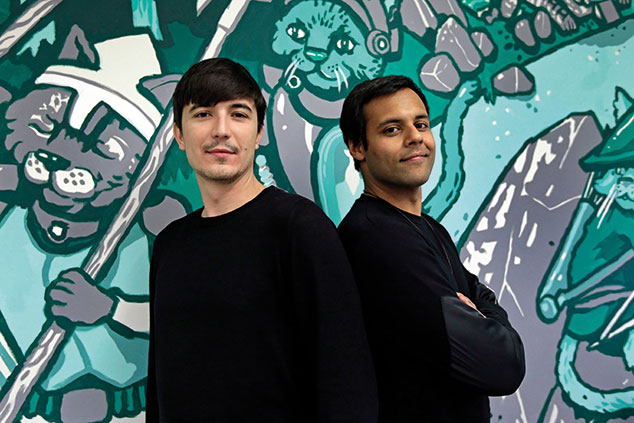
We are used to having free apps on our phone, free delivery over the internet and free current accounts from our bank. Now it looks like there’s something else we won’t have to pay for any more: trading shares.
Rewind 20 years and the buying and selling of shares was often very expensive. Banks and brokers typically charged a percentage of the value of the trade – indeed, before the “Big Bang” deregulation of 1986 there were fixed minimum commissions. If you were dealing in thousands or tens of thousands of pounds, that could add up to a hefty bill each time you bought or sold anything. Trading fees were one of the City’s most lucrative sources of income. As trading moved online, however, fees came down. Online brokers now trade shares for a fixed fee of between £5 and £10.
The economics of free
Then a start-up called Robinhood began offering free trades. Charles Schwab, the biggest retail broker in the US, slashed trading costs to zero in the summer and so did many other brokers. That quickly proved very popular with customers. Schwab has already seen a 30% increase in the number of private accounts.
When a business idea works in the US it is usually not very long before it crosses the Atlantic. Sure enough, free trading is coming to Britain. Robinhood, which kick-started the whole thing, has this month said it plans to launch in the UK. A company called Freetrade has just raised $15m in venture-capital funding for its platform. London’s ambitious and well-funded fintech companies will surely be planning to get on board this bandwagon.
Sure, the economics of free trading can be challenging. Brokers will have to make money in other ways – for example, by charging for premium services, such as research, or news, or selling other financial services. But if Google can provide complex technology such as mobile-operating systems, search engines and maps for free, and Facebook and Twitter can provide social media and telecoms services for nothing, it’s hard to see why a relatively simple, highly computerised product like equity trading should be paid for. Nor is there anything strange about offering a free service as a way of creating a base of customers to sell to. The retail banks have done that for generations and so have broadcasters. It can be a successful business model so long as costs are under control and money can be made from the extra services. Yet it is going to have big consequences for the City. Here are three to watch out for.
What this means for the City
First, the traditional brokers are going to be in a lot of trouble very quickly. It is hard to charge for a service when a rival is offering a reasonably efficient and reliable alternative for nothing. True, there may be some inertia among investors and it might take a little time for people to feel safe entrusting their portfolios to a company they have not heard of. But there is plenty of evidence from other industries to suggest they will be persuaded very quickly once they see the price. We can expect the dominant brokers to be under pressure and, like Schwab in the US, they will probably have to go free themselves.
Next, there will be a round of mergers as the legacy companies struggle to compete. In the US, not only has Schwab switched to free trading, but it is now also planning a merger with its biggest traditional rival, TD Ameritrade. When trading fees disappear the brokers have to be a lot more efficient to survive – and often the simplest way to achieve that is to consolidate. We can expect to see something very similar in the City.
Finally, just as in the US there will be a big rise in customer numbers. As noted previously, Schwab has opened 30% more accounts since abolishing fees: clearly a lot of people who didn’t own equities before have been tempted into the market by the simplicity of free accounts. Private investors have been sidelined for generations. Free trading will spark a long overdue revival. This shake up won’t be a lot of fun for the existing incumbents. Disruption never is. But once the dust has settled, the financial markets will be better for it.